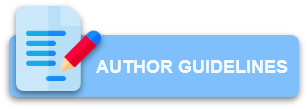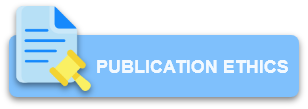Internet Addiction among University Students: Causes, Consequences, and the Role of Cyber Counseling
DOI:
https://doi.org/10.34010/injiiscom.v5i1.12489Keywords:
Internet Addiction, Cyber Counselors, UndergraduatesAbstract
This study explores the prevalence of internet addiction among undergraduate students in Kwara State and examines the potential effectiveness of cyber counselling in addressing this issue. The paper commences by providing a precise definition of internet addiction, proceeds to assess its prevalence among undergraduates in Kwara State, conducts an in-depth review of existing research on the factors contributing to internet addiction, and outlines the adverse consequences associated with excessive internet use among students. Based on this thorough analysis, the research emphasizes the crucial role that cyber counsellors, professionals trained to offer therapeutic guidance and support for individuals struggling with internet addiction, can play in helping individuals manage their addiction and improve their overall well-being. Furthermore, the study advocates for a collaborative approach, bringing together cyber counsellors, educational institutions, and other relevant organizations, to raise awareness about the risks of internet addiction and to develop initiatives and policies that promote a healthier and more balanced internet usage among student populations
References
Abdallah Altarawneh, A. M., & Awwad Alomoush, R. A. (2022). The reality of e-counseling services in the light of digital learning from the point of view of teachers in Jordan. Education and Information Technologies, 1–20.
Abdel-Salam, D. M., Alrowaili, H. I., Albedaiwi, H. K., Alessa, A. I., & Alfayyadh, H. A. (2019). Prevalence of Internet addiction and its associated factors among female students at Jouf University, Saudi Arabia. Journal of the Egyptian Public Health Association, 94(1), 1–8.
Abdulkareem, H. B., Bello, J. B., & Salami, T. A. (2023). Self-concept and locus of control as internet addiction predictors among undergraduate students. ASEAN Journal of Educational Research and Technology, 2(3), 179–188.
Abdulkareem, H. B., Hassan, A. A., & Suleiman, A. (2023). Personality traits as a correlate of adult education students’ study habits. Indonesian Journal of Multidiciplinary Research, 3(2), 203-218.
Afolabi, A. A., Ilesanmi, O. S., & Adebayo, A. M. (2022). Prevalence and Pattern of Internet Addiction Among Adolescents in Ibadan, Nigeria: A Cross-Sectional Study. Cureus, 14(2), 10–22.
Alabi, A. W., & Olaoye, F. O. (2022). The Effect of Technology Adoption on Financial Inclusion: A Cross-Country Panel Analysis between China and Nigeria European. Journal of Business and Management Research, 7(2), 1–11.
Amudhan, S., Prakasha, H., Mahapatra, P., Burma, A. D., Mishra, V., Sharma, M. K., & Rao, G. N. (2021). Technology addiction among school-going adolescents in India: epidemiological analysis from a cluster survey for strengthening adolescent health programs at district level. Journal of Public Health.
Baek, H., Roberts, A. M., Seepersad, R., & Swartz, K. (2019). Examining negative emotions as mediators between exposures to family violence and bullying: A gendered perspective. Journal of School Violence, 18(3), 440–454.
Baturay, M. H., & Toker, S. (2019). Internet addiction among college students: some causes and effects. Education and Information Technologies, 24(5), 2863–2885.
Bello, J. B., Abdulkareem, H. B., Hassan, A. A., Ogo-oluwa, A. A., & Abubakar, A. O. Influence of Locus of Control on Internet Addiction among Kwara State Colleges of Education Students. Jurnal Pendidikan Multimedia (Edsence), 5(1), 11–20.
Berte, D. Z., Mahamid, F. A., & Affouneh, S. (2021). Internet addiction and perceived self-efficacy among university students. International Journal of Mental Health and Addiction, 19(1), 162-176.
Bhardwaj, V. K. (2018) Internet addiction, loneliness, and academic performance among secondary school students. International Journal of Education and Management Studies, 8(1), 76–80.
Chand, P., & Sheth, S. (2021). 9 Assessment for Pathological Internet Use (“Internet Addiction”). Cyberpsychiatry, 121.
Cheng, Y. S., Ko, H. C., Sun, C. K., & Yeh, P. Y. (2021). The relationship between delay discounting and Internet addiction: a systematic review and meta-analysis. Addictive Behaviors, 114, 106751.
Darpinian, S., Sterling, W., & Aggarwal, S. (2022). Raising Body Positive Teens: A Parent’s Guide to Diet-Free Living, Exercise, and Body Image. Jessica Kingsley Publishers
Dodig Hundric, D., Lotar Rihtaric, M., Mandić, S., & Ricijaš, N. (2023). The Mediating Effect of Danger Invulnerability in the Relationship Between Sensation Seeking and Gambling Among University Students. Journal of Gambling Studies, 1–17.
Duong, X. L., Liaw, S. Y., & Augustin, J. L. P. M. (2020). How has Internet addiction been tracked over the last decade? A literature review and 3C paradigm for future research. International Journal of Preventive Medicine, 11.
Earle, M. J., & Freddolino, P. P. (2022). Meeting the practice challenges of COVID-19: MSW students’ perceptions of e-therapy and the therapeutic alliance. Clinical Social Work Journal, 50(1), 76–85.
Eid, M., Nusairat, N., Alkailani, M., & Al-Ghadeer, H. (2020). Internet users’ attitudes towards social media advertisements: The role of advertisement design and users’ motives. Management Science Letters, 10(10), 2361-2370.
Enright, G., Allman-Farinelli, M., & Redfern, J. (2020). Effectiveness of family-based behavior change interventions on obesity-related behavior change in children: a realist synthesis. International Journal of Environmental Research and Public Health, 17(11), 4099.
Enright, G., Allman-Farinelli, M., & Redfern, J. (2020). Effectiveness of family-based behavior change interventions on obesity-related behavior change in children: a realist synthesis. International Journal of Environmental Research and Public Health, 17(11), 4099.
Fardghassemi, S., & Joffe, H. (2022). The causes of loneliness: The perspective of young adults in London’s most deprived areas. Plos one, 17(4), e0264638.
Fatema, K., Nasreen, S., Parvez, M. S., & Rahaman, M. A. (2020). Impact of using the Internet on students: A sociological analysis at Bangabandhu Sheikh Mujibur Rahman Science and Technology University, Gopalganj, Bangladesh. Open Journal of Social Sciences, 8(12), 71–83.
Fernandez, E., Woldgabreal, Y., Day, A., Pham, T., Gleich, B., & Aboujaoude, E. (2021). Live psychotherapy by video versus in-person: A meta-analysis of efficacy and its relationship to types and targets of treatment. Clinical Psychology & Psychotherapy, 28(6), 1535–1549.
Hassan, A. A., & Abdulkareem, H. B. (2023). Common 21st-Century Social Vices Among the Youth. ASEAN Journal of Community and Special Needs Education, 2(1), 35–44.
Hassan, A. A., Abdulkareem, H. B., & Suleiman, A. (2023). Self-concept as a predictor of internet addiction among undergraduate students at Kwara State University, Nigeria. ASEAN Journal of Educational Research and Technology, 3(1), 1–8.
Hassan, A. A., Abdulkareem, H. B., & Suleiman, A. (2023). Self-concept as a predictor of internet addiction among undergraduate students at Kwara State University, Nigeria. ASEAN Journal of Educational Research and Technology, 3(1), 1–8.
Herrero, J., Torres, A., Vivas, P., Hidalgo, A., Rodríguez, F. J., & Urueña, A. (2021). Smartphone addiction and cybercrime victimization in the context of lifestyle routine activities and self-control theories: The user’s dual vulnerability model of cybercrime victimization. International journal of environmental research and public health, 18(7), 3763
Jeong, B., Lee, J. Y., Kim, B. M., Park, E., Kwon, J. G., Kim, D. J.,... & Lee, D. (2020). Associations of personality and clinical characteristics with excessive Internet and smartphone use in adolescents: A structural equation modeling approach .Addictive behaviors, 110, 106485
Kircaburun, K., Yurdagül, C., Kuss, D., Emirtekin, E., & Griffiths, M. D. (2020). Problematic mukbang watching and its relationship to disordered eating and internet addiction: a pilot study among emerging adult mukbang watchers. International Journal of Mental Health and Addiction, 1–10.
Kurniasanti, K. S., Assandi, P., Ismail, R. I., Nasrun, M. W. S., & Wiguna, T. (2019). Internet addiction: a new addiction? Medical Journal of Indonesia, 28(1), 82–91.
Lamont, G. J., Weaver, K. D., Figueiredo, R., Mercer, K., Jonahs, A., Love, H. A.,... & Al-Hammoud, R. (2020). Information-seeking behavior among first-year engineering students and the impacts of pedagogical intervention in 2020, ASEE Virtual Annual Conference Content Access
Lebni, J. Y., Toghroli, R., Abbas, J., NeJhaddadgar, N., Salahshoor, M. R., Mansourian, M.,... & Ziapour, A. (2020). A study of internet addiction and its effects on mental health: A study based on Iranian university students. Journal of Education and Health Promotion, 9.
Li, D. (2022). The Shift to Online Classes During the COVID-19 Pandemic: Benefits, Challenges, and Required Improvements from the Students' Perspective. Electronic Journal of E-Learning, 20(1), 1–18.
Lin, M. P. (2020). The prevalence of internet addiction during the COVID-19 outbreak and its risk factors among junior high school students in Taiwan. International journal of environmental research and public health, 17(22), 8547
López-Meneses, E., Sirignano, F. M., Vázquez-Cano, E., & Ramírez-Hurtado, J. M. (2020). University students’ digital competence in three areas of the DigCom 2.1 model: A comparative study at three European universities. Australasian Journal of Educational Technology, 36(3), 69–88.
Lubis, M., & Handayani, D. O. D. (2022). The relationship between personal data protection and internet addiction: cybercrime, pornography, and reduced physical activity. Procedia Computer Science, 197, 151–161.
Machimbarrena, J. M., Calvete, E., Fernández-González, L., Álvarez-Bardón, A., Álvarez-Fernández, L., & González-Cabrera, J. (2018). Internet risks: An overview of victimization in cyberbullying, cyber dating abuse, sexting, online grooming, and problematic internet use. international journal of environmental research and public health, 15(11), 2471
Mathew, P. (2020). Impact of problematic internet use on the self-esteem of adolescents in the selected school, Kerala, India. Archives of Psychiatric Nursing, 34(3), 122-128
Matsumoto, K., Hamatani, S., & Shimizu, E. (2021). Effectiveness of videoconference-delivered cognitive behavioral therapy for adults with psychiatric disorders: a systematic and meta-analytic review. Journal of medical Internet research, 23(12), e31293.
Mead, D., & Sharpe, M. (2021). Aligning the “Manifesto for a European Research Network into Problematic Usage of the Internet” with the Diverse Needs of the Professional and Consumer Communities Affected by Problematic Usage of Pornography. Internet and Smartphone Use-Related Addiction Health Problems: Treatment, Education, and Research, 17, 379
Muraina, K. O., & Popoola, B. O. (2022). Locus of Control and Self-Concept as Determinants of Internet Addiction among Public University Undergraduates in Kwara State, Nigeria. Journal of Digital Learning and Education, 2(1), 51–58.
Muraina, K. O., & Popoola, B. O. (2022). Locus of control and self-concept as determinants of internet addiction among public university undergraduates in Oyo State, Nigeria. Journal of Digital Learning and Education, 2(1), 51–58.
Mustapha, M. L. A., & Muhammed, S. A. (2017). PREVALENCE AND FORMS OF INTERNET ADDICTION AMONG YOUTHS IN KWARA STATE, NIGERIA
Nageeb, S. M., & Al Enzi, N. M. M. (2020). The Effect of Internet Addiction on Executive Functions and Communication Skills among University Nursing Students. International journal of nursing didactics, 10(02), 11–26.
Novella, J. K., Ng, K. M., & Samuolis, J. (2022). A comparison of online and in-person counseling outcomes using solution-focused brief therapy for college students with anxiety. Journal of American College Health, 70(4), 1161–1168.
Ogunwuyi, B. O., & Omoike, A. (2020). Emotional intelligence and internet addiction among students at the university. Journal of Educational Review, 2(6), 18–29
Omiunu, O. G. (2017) Paradoxical Modeling of the Negative Uses of ICT and Their Implications among Secondary School Students in Oyo State, Nigeria: A Phenomenographical Analysis Towards a Grounded Theory. Library Philosophy and Practice, 1.
Pawlikowska, A., Szuster, E., Kostrzewska, P., Mandera, A., Biernikiewicz, M., Sobieszczańska, M., & Kałka, D. (2022). Internet Addiction and Polish Women’s Sexual Functioning: The Role of Social Media, Online Pornography, and Game Use during the COVID-19 Pandemic—Online Surveys Based on FSFI and BSMAS Questionnaires. International Journal of Environmental Research and Public Health, 19(13), 8193
Rahmatullah, A. S., Mulyasa, E., Syahrani, S., Pongpalilu, F., & Putri, R. E. (2022). Digital Era 4.0: The Contribution to Education and Student Psychology. Linguistics and Culture Review, 6, 89–107.
Schell, B. (2020). Internet addiction and cybercrime. The Palgrave handbook of international cybercrime and cyberdeviance, 679–703.
Stoll, J., Müller, J. A., & Trachsel, M. (2020). Ethical issues in online psychotherapy: A narrative review. Frontiers in Psychiatry, 10, 993.
Su, W., Han, X., Yu, H., Wu, Y., & Potenza, M. N. (2020). Do men become addicted to internet gaming and women to social media? A meta-analysis examining gender-related differences in specific internet addictions. Computers in Human Behavior, 113, 106480.
Thomas, N., McDonald, C., de Boer, K., Brand, R. M., Nedeljkovic, M., & Seabrook, L. (2021). Review of the current empirical literature on using videoconferencing to deliver individual psychotherapies to adults with mental health problems Psychology and Psychotherapy: Theory, Research, and Practice, 94(3), 854–883.
Thomas, N., McDonald, C., de Boer, K., Brand, R. M., Nedeljkovic, M., & Seabrook, L. (2021). Review of the current empirical literature on using videoconferencing to deliver individual psychotherapies to adults with mental health problems Psychology and Psychotherapy: Theory, Research, and Practice, 94(3), 854–883.
Tóth, G., Kapus, K., Hesszenberger, D., Pohl, M., Kósa, G., Kiss, J.,... & Feher, G. (2021). Prevalence and risk factors of internet addiction among Hungarian high school teachers. Life, 11(3), 194.
Tus, J. (2020). Self-Concept, Self-Esteem, Self-Efficacy, and Academic Performance of the Senior High School Students International Journal of Research Culture Society, 4(10), 45–59.
Uye, E. E., Abiahu, K. C., Ikechukwu, D. S., & Olapegba, P. O. (2022). Role of personality traits and internet addiction on interpersonal relationship quality among undergraduates at the University of Ibadan, Nigeria Journal of Psychology and Behavioural Disciplines, COOU, 2(2)
Wang, W. C. (2019). Exploring the relationship among free-time management, leisure boredom, and internet addiction in undergraduates in Taiwan. Psychological reports, 122(5), 1651–1665
Xu, S., Luo, L., Xiao, Z., Zhao, K., Wang, H., Wang, C., & Rao, H. (2019). High-sensation seeking is associated with behavioral and neural insensitivity to increased negative outcomes during decision-making under uncertainty. Cognitive, Affective, and Behavioral Neuroscience, 19(6), 1352–1363.

















